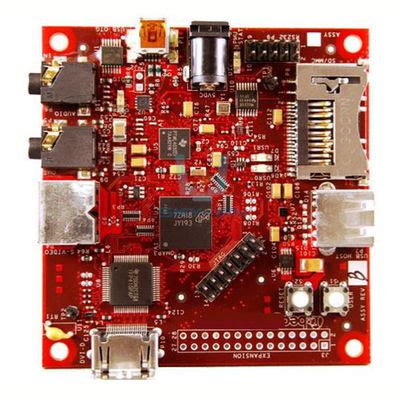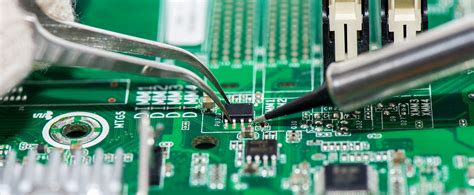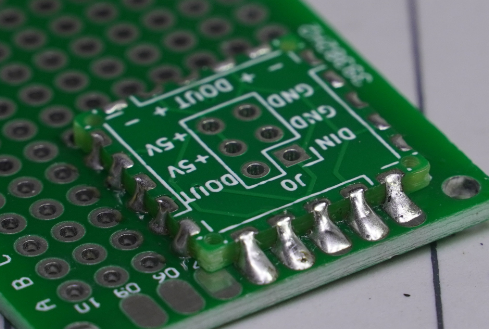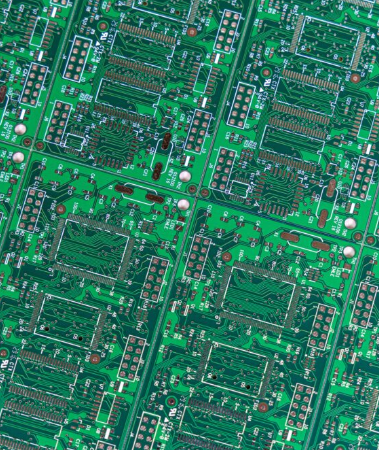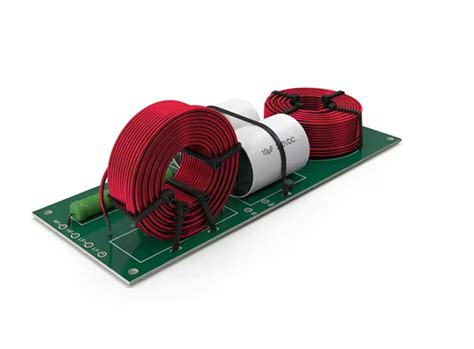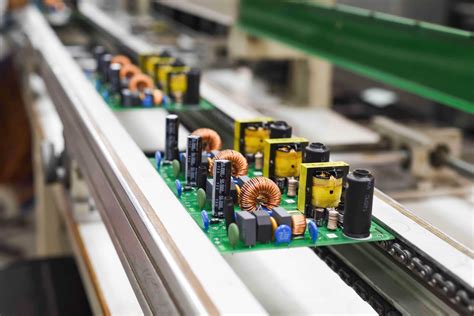Title:** Streamlined Turnkey Prototype Assembly Solutions
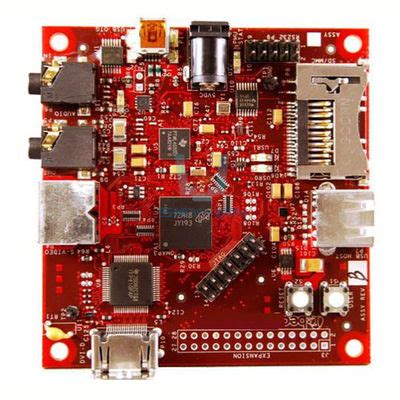
Key Takeaways
Streamlined turnkey prototype assembly solutions offer a holistic approach to product development, combining PCB assembly (PCBA), component sourcing, and testing into a unified workflow. By integrating end-to-end processes, these solutions eliminate fragmented workflows, ensuring seamless coordination between design, prototyping, and manufacturing stages. This approach minimizes delays, reduces manual handoffs, and accelerates time-to-market for innovative products.
A critical advantage lies in the precision of PCBA integration, where advanced techniques like automated soldering and surface-mount technology (SMT) ensure consistent quality. For example, PCB assembly errors—common in traditional prototyping—are mitigated through real-time monitoring and rigorous validation protocols. Additionally, agile iteration cycles enable rapid design adjustments, allowing teams to refine prototypes without compromising timelines.
| Aspect | Traditional Prototyping | Turnkey Approach |
|---|---|---|
| Process Integration | Fragmented workflows | Unified end-to-end solutions |
| Engineering Precision | Manual quality checks | Automated PCBA validation |
| Time Efficiency | Weeks for iterations | Days for design updates |
| Quality Assurance | Reactive error resolution | Proactive defect prevention |
By leveraging turnkey prototype assembly, companies gain access to scalable resources, from specialized PCB assembly tools to expertise in multi-material integration. This not only accelerates market readiness but also ensures compliance with industry standards, reducing risks associated with product launches. The result is a competitive edge driven by faster innovation cycles and reliable, high-performance prototypes.

Introduction to Turnkey Prototype Assembly Solutions
Modern product development demands agility and precision, making turnkey prototype assembly a critical enabler for innovators. These solutions encompass end-to-end processes, from initial design validation to functional testing, ensuring seamless integration of components such as PCB assembly (PCBA) and mechanical systems. By consolidating design, procurement, precision engineering, and assembly under a single provider, businesses eliminate fragmented workflows, reducing risks of miscommunication or delays.
A key advantage lies in the holistic coordination of PCB assembly with other subsystems. For instance, integrating PCBA early in prototyping allows engineers to identify electrical-mechanical conflicts, optimize layouts, and validate performance in real-world conditions. This approach minimizes redesign cycles and accelerates iterations, which is vital for industries like consumer electronics or medical devices where time-to-market is a competitive differentiator.
Tip: When selecting a turnkey partner, prioritize those with expertise in both high-mix PCB assembly and mechanical integration. This ensures compatibility across subsystems and reduces bottlenecks during scaling.
Advanced turnkey prototype assembly services also leverage automation and modular workflows to handle low-volume, high-complexity builds. For example, automated optical inspection (AOI) in PCBA guarantees solder joint integrity, while modular fixturing streamlines assembly for bespoke designs. Such precision not only enhances reliability but also builds a foundation for seamless transition to mass production. By embedding quality assurance at every stage, these solutions mitigate post-deployment failures, safeguarding brand reputation and customer trust.
Ultimately, the value of streamlined turnkey approaches lies in their ability to compress timelines without compromising quality. Whether refining a IoT device’s PCB assembly or validating a robotics prototype, end-to-end solutions empower teams to focus on innovation rather than logistical hurdles. This synergy of speed, accuracy, and collaboration is reshaping how products move from concept to market-ready reality.
Key Benefits of Streamlined Prototype Development
Streamlined turnkey prototype assembly solutions offer a strategic advantage in modern product development by minimizing complexity and maximizing efficiency. One of the primary benefits lies in the integration of PCB assembly (PCBA) processes into a unified workflow, ensuring that design, component sourcing, and manufacturing align seamlessly. This approach eliminates fragmented workflows, reducing the risk of delays and miscommunication. By leveraging end-to-end solutions, teams can focus on innovation rather than navigating logistical challenges, accelerating iterations from concept to functional prototype.
Precision engineering plays a pivotal role in enhancing time-to-market. Advanced PCBA techniques, such as automated soldering and high-density interconnect (HDI) technology, enable the creation of compact, reliable prototypes that meet stringent performance criteria. Additionally, real-time collaboration between engineering and manufacturing teams ensures design adjustments are implemented swiftly, avoiding costly rework. For industries requiring rapid validation—such as consumer electronics or IoT devices—this agility is critical.
Cost efficiency is another hallmark of streamlined prototyping. By consolidating services like PCB assembly, testing, and quality assurance under a single provider, businesses reduce overhead and mitigate supply chain risks. Predictable timelines and transparent communication further enhance project scalability, allowing companies to adapt to market demands without compromising quality.
Finally, robust quality assurance protocols embedded within turnkey solutions ensure prototypes meet regulatory and functional standards early in development. This proactive approach minimizes post-production defects, fostering confidence in final product performance. Whether refining a medical device or optimizing automotive sensors, streamlined prototyping empowers organizations to achieve faster market readiness while maintaining rigorous engineering excellence.
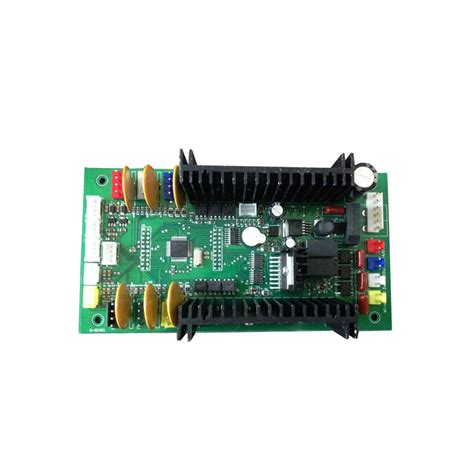
Seamless Integration in End-to-End Assembly Processes
Seamless Integration in End-to-End Assembly Processes
A cornerstone of modern manufacturing lies in achieving seamless integration across end-to-end assembly processes. By unifying design, prototyping, testing, and validation into a cohesive workflow, manufacturers eliminate bottlenecks and streamline production. Central to this integration is the role of PCB assembly (PCBA), which ensures precise component placement and connectivity. Advanced PCB assembly processes leverage automation and real-time monitoring to minimize errors, ensuring consistency in high-volume production.
By embedding PCBA early in the design phase, teams reduce iterative delays and accelerate time-to-market. This approach not only enhances precision but also fosters agility in adapting to design changes. For industries like medical devices or aerospace, where precision is non-negotiable, such integration ensures compliance with stringent quality standards. Ultimately, a unified workflow—from prototyping to final assembly—empowers businesses to scale efficiently while maintaining rigorous quality benchmarks.
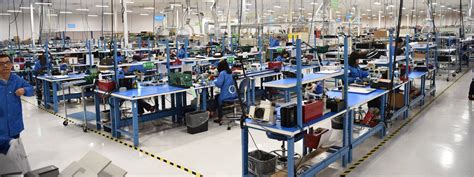
Precision Engineering for Faster Product Iterations
Precision engineering lies at the core of streamlined turnkey prototype assembly, enabling rapid product iterations that bridge the gap between concept and market-ready solutions. By integrating advanced PCB assembly (PCBA) techniques with cutting-edge automation, manufacturers achieve unparalleled accuracy in component placement, soldering, and testing. This meticulous approach minimizes design flaws early in the development cycle, reducing costly revisions and accelerating time-to-validation. For instance, high-precision surface-mount technology (SMT) ensures consistent performance in compact, complex designs, while design for manufacturability (DFM) principles optimize layouts for seamless scalability.
The synergy between PCB assembly and end-to-end prototyping workflows ensures that every iteration benefits from real-time feedback loops. Advanced tools like automated optical inspection (AOI) and 3D solder paste inspection (SPI) validate quality at each stage, ensuring compliance with industry standards. Moreover, modular PCBA processes allow engineers to test multiple configurations efficiently, refining functionality without disrupting production timelines. This agility is critical for industries like IoT, automotive, and medical devices, where even minor design adjustments can significantly impact performance and compliance.
By embedding precision engineering into turnkey prototype assembly, teams achieve faster iteration cycles while maintaining rigorous quality benchmarks. The result? Reduced rework, lower risk of delays, and a clear pathway from prototype validation to full-scale manufacturing—all essential for staying competitive in fast-paced markets.
Accelerating Market Readiness with Turnkey Approaches
Turnkey prototype assembly solutions are revolutionizing how businesses transition from concept to market-ready products. By integrating PCB assembly (PCBA) and other critical manufacturing processes into a single, cohesive workflow, these approaches eliminate bottlenecks and ensure seamless coordination across design, testing, and production phases. A streamlined turnkey model consolidates expertise in precision engineering, component sourcing, and quality control, enabling rapid iterations and reducing dependencies on multiple vendors. This end-to-end methodology is particularly effective in industries like electronics, where complex PCBA requirements demand meticulous attention to detail and adherence to tight timelines.
The agility of turnkey solutions lies in their ability to seamlessly merge prototyping with scalable manufacturing readiness. For instance, a single provider handling PCB assembly, firmware integration, and mechanical assembly ensures design consistency while accelerating validation cycles. Advanced tools such as automated pick-and-place systems and 3D optical inspection further enhance accuracy, minimizing rework and delays. By embedding quality assurance at critical stages, turnkey partners mitigate risks early, ensuring prototypes meet performance benchmarks and regulatory standards.
Moreover, collaborative project management frameworks within turnkey ecosystems enable real-time communication between engineering teams and clients. This transparency fosters faster decision-making, allowing adjustments to be implemented without disrupting the production timeline. The result is a dramatic reduction in time-to-market—a competitive advantage in fast-paced sectors. Companies leveraging these integrated approaches not only accelerate product launches but also gain flexibility to pivot designs based on user feedback or emerging trends, ensuring their innovations remain relevant in dynamic markets.
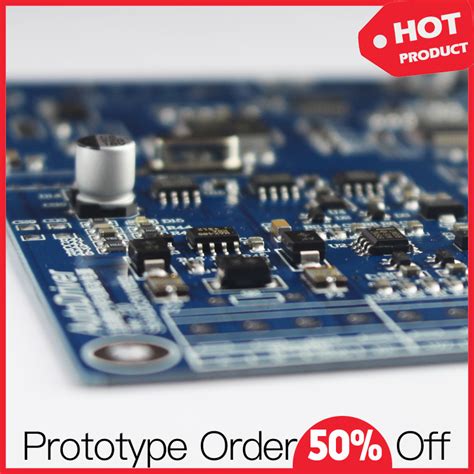
Reducing Time-to-Market Through Efficient Prototyping
Efficient prototyping is a cornerstone of modern product development, directly influencing a company’s ability to meet aggressive time-to-market goals. By leveraging streamlined turnkey prototype assembly solutions, businesses can eliminate fragmented workflows and accelerate the transition from concept to functional product. Central to this process is the integration of PCB assembly (PCBA) services, which ensure that electronic components are meticulously mounted, tested, and validated within a single cohesive framework. Turnkey approaches unify design, prototyping, and manufacturing under one umbrella, enabling rapid iterations while minimizing delays caused by supplier coordination or quality mismatches.
A critical advantage lies in the seamless alignment of precision engineering with end-to-end assembly workflows. For instance, advanced PCBA techniques, such as automated solder paste application and high-speed component placement, reduce human error and enhance repeatability. This precision not only shortens development cycles but also ensures prototypes closely mirror final production units, reducing the risk of late-stage redesigns. Additionally, real-time collaboration between design teams and assembly partners allows for immediate feedback, enabling engineers to refine PCB layouts or material choices without derailing project timelines.
Quality assurance is embedded at every stage, from initial PCB assembly to functional testing, ensuring prototypes meet rigorous performance standards. By adopting a turnkey model, companies gain access to scalable resources, such as on-demand manufacturing capacity and certified components, which further compress development schedules. This holistic approach transforms prototyping from a bottleneck into a strategic accelerator, empowering businesses to respond swiftly to market demands and emerging opportunities.
Quality Assurance in Turnkey Prototype Manufacturing
Quality assurance (QA) is a cornerstone of turnkey prototype assembly, ensuring that every stage of production aligns with rigorous standards to deliver functional, reliable, and market-ready products. In PCB assembly (PCBA) and integrated prototyping workflows, QA protocols focus on minimizing defects, optimizing performance, and validating design integrity. By implementing advanced inspection techniques such as automated optical inspection (AOI) and X-ray testing, manufacturers identify issues like soldering flaws or component misalignments early, preventing costly delays.
A key aspect of QA in streamlined turnkey solutions is the integration of real-time monitoring across end-to-end processes. From material sourcing to final assembly, traceability systems track component origins, assembly parameters, and testing results, ensuring compliance with industry certifications like IPC-A-610 and ISO 9001. This level of oversight not only enhances product reliability but also accelerates feedback loops for design refinements. For instance, in precision engineering applications, QA teams validate dimensional accuracy and electrical performance through functional testing, ensuring prototypes meet exact specifications before scaling to production.
Moreover, QA frameworks in turnkey prototype manufacturing emphasize collaboration between engineering and production teams. By standardizing workflows and leveraging data-driven insights, manufacturers reduce variability and maintain consistency across batches. This approach is particularly critical in PCB assembly, where even minor deviations can impact signal integrity or thermal management. Through iterative testing and failure mode analysis, QA processes enable faster iterations, aligning with the broader goal of accelerating market readiness.
Ultimately, robust QA practices ensure that prototypes transition seamlessly into mass production, minimizing risks and upholding the promise of turnkey solutions to deliver speed, precision, and scalability.
Case Studies: Success Stories in Prototype Assembly
Several companies across industries have leveraged streamlined turnkey prototype assembly solutions to overcome development bottlenecks and achieve faster market entry. For example, a consumer electronics startup aimed to launch a compact IoT device but faced challenges in coordinating PCB assembly and component sourcing. By partnering with a turnkey provider, they gained access to end-to-end integration of design validation, PCBA (printed circuit board assembly), and functional testing. This collaboration reduced prototyping cycles by 60%, enabling rapid iteration based on real-time feedback.
In another instance, an automotive tech firm needed to validate a sensor module for autonomous vehicles. Traditional fragmented workflows delayed critical milestones, but adopting a turnkey approach allowed seamless transition from precision engineering of custom PCBs to full-system integration. The provider’s expertise in high-mix, low-volume manufacturing ensured rigorous quality assurance, resulting in a 30% improvement in defect detection during pre-production.
A medical device manufacturer further highlights the value of turnkey solutions in regulated environments. Their portable diagnostic tool required compliance with stringent certifications, which the partner addressed through traceable PCB assembly processes and automated inspection protocols. By consolidating prototyping, PCBA, and compliance testing under one roof, the project achieved regulatory approval four months ahead of schedule.
These success stories underscore how integrated workflows and precision engineering in turnkey prototype assembly accelerate innovation. By eliminating logistical friction and ensuring consistency across PCB assembly and system integration, businesses can focus on design optimization while meeting aggressive timelines.
Conclusion
The evolution of turnkey prototype assembly has redefined how industries approach product development, offering a cohesive framework that bridges design, prototyping, and testing. By integrating PCB assembly (PCBA) into end-to-end workflows, businesses gain access to fully managed solutions that eliminate fragmented processes and reduce operational bottlenecks. This approach ensures seamless integration across stages, from initial concept validation to functional testing, enabling teams to focus on innovation rather than logistical challenges. Precision engineering plays a pivotal role in accelerating iterations, with advanced PCBA techniques ensuring component accuracy and reliability even in complex designs. The result is a significant reduction in time-to-market, as streamlined workflows minimize rework and align prototyping with mass production standards. Rigorous quality assurance protocols further safeguard against defects, ensuring prototypes meet performance benchmarks before scaling. Case studies across industries—from consumer electronics to medical devices—highlight how turnkey solutions adapt to diverse requirements, delivering market-ready prototypes without compromising flexibility or cost efficiency. As competition intensifies, adopting these integrated strategies becomes a strategic imperative for organizations aiming to lead in innovation and operational agility.
Frequently Asked Questions
What is a turnkey prototype assembly solution?
A turnkey prototype assembly solution provides end-to-end services, from design and PCB assembly to final testing and delivery. It eliminates the need to coordinate multiple vendors, ensuring seamless integration of components like PCBA (Printed Circuit Board Assembly) and mechanical parts for faster product development.
How does streamlined prototyping accelerate market readiness?
By combining precision engineering with automated workflows, streamlined prototyping reduces manual errors and iteration cycles. Integrated PCB assembly processes ensure components like sensors or microcontrollers function optimally, shortening validation phases and accelerating time-to-market.
What role does PCBA play in turnkey prototyping?
PCBA is critical in embedding electronic functionality into prototypes. Advanced PCB assembly techniques, such as surface-mount technology (SMT) and rigorous quality checks, ensure reliable circuit performance, which is vital for iterative testing and validation.
How are quality standards maintained in turnkey manufacturing?
Turnkey providers implement automated inspection systems and adhere to industry certifications (e.g., ISO 9001). For PCBA, protocols like AOI (Automated Optical Inspection) and functional testing validate electrical performance, ensuring prototypes meet design specifications.
Can turnkey solutions handle complex or custom designs?
Yes. These solutions leverage modular workflows to accommodate custom requirements, whether integrating specialized PCB assembly for IoT devices or high-precision mechanical components. Engineers collaborate closely with clients to refine designs iteratively.
Does a turnkey approach reduce overall costs?
By minimizing overhead from managing multiple vendors and reducing rework through precision engineering, turnkey solutions lower long-term expenses. Faster iterations also prevent costly delays, making the process economically efficient.
How quickly can a prototype move from design to production?
With end-to-end integration, timelines can shrink by 30–50%. For example, a PCBA-focused prototype might progress from schematic to functional unit in weeks, depending on complexity and component availability.
Explore Custom Turnkey Prototype Solutions Today
For tailored PCB assembly and end-to-end prototyping services, please click here to learn how we accelerate your product’s journey from concept to market.

